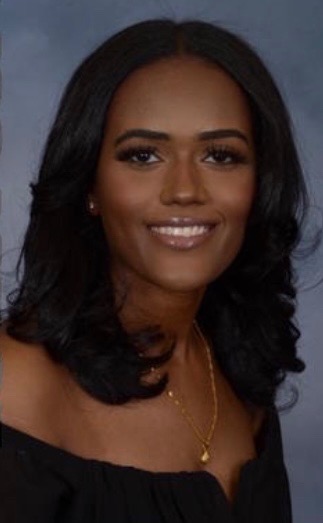
Meet Sara Gallo, a first-generation graduate who received a Bachelor’s of Arts in Human Development and Family Sciences this May. Below, she shares her experiences about navigating her career path within the healthcare field as a first-generation immigrant and student.
Chelsea Osei: Please tell us why you chose your major or area of academic interest?
Sara Gallo: I was originally a Chemistry major on the Pre-Med track. During my sophomore year of college, I realized I was not interested in Chemistry. I took a Human Development and Family Sciences (HDFS) class, which is learning about human development in the sense of one’s physical, emotional, and mental development. I really enjoyed it, so I ended up changing my major and it worked out well for me.
CO: Have you had to overcome any academic difficulties, as a first-generation student?
SG: I think as a college student in general you must overcome a lot of academic difficulties, but as a first-generation student you are going into college blind because you do not have anyone in your family for guidance. The most they can do is be as supportive as they can be, but it is hard for families to understand certain aspects. For instance, when it came to changing my major or any academic difficulties, it was hard for me to share my struggles. To my family, the solution is to work or study harder, and sometimes the solution is not that simple. Although I excelled at chemistry in high school, college was a different story. This made the transition to college tricky to navigate. These were things I had to figure out for myself, but surrounding yourself with other first-generation students or people who have already been through the process is helpful. We guide each other and figure college out together, so it does not feel like I am completely lost.
CO: How did you navigate the change in your major/career path?
SG: Changing my major was easier than changing my career path. By taking HDFS I was able to gear a lot of classes toward healthcare and I was still able to take health and science classes I would have taken as a Pre-Med student. I started to learn more about the administrative aspects of healthcare which led me to public health and policy aspects. Changing my career was a little more difficult. I wanted to be a doctor my whole life, and I know it sounds cliché, but it made my parents proud. I didn’t change my mind about being a doctor until college and it was not due to the academic difficulties, but the sacrifices I would have to make to become a doctor. For me, the four years of undergraduate, another four years of medical school, residency, etc., were a lot; I would have sacrificed family, friends, and personal time because these are aspects of my life that are important to me.
CO: What types of clubs/extracurricular activities were you involved in and how did they supplement your academic interests?
SG: I started off at UConn Stamford for the first two years of college. At that campus I was involved in extracurricular activities such as Black Student Union and African Student Association. At the Storrs campus I attended more club meetings and tried to be more social and get to know people through programs at the African American Cultural Center (AACC). Besides that, most of my friends from UConn Stamford transferred up here and we are still close friends. However, things were a bit difficult due to COVID, so I didn’t really have the typical college experience.
CO: Who are the people that support you in your success?
SG: I have my parents, especially my mom, who play a big role in my life. She is incredibly supportive of me and has instilled in me that no matter what I chose to do in life, so long as I put in the effort, I can do anything. She is my role model and a constant reminder of how her hard work ethic has afforded me opportunities such as being in college and experiences she did not get to have. Even when I told her I no longer wanted to be a doctor she was supportive. She even helped me look for jobs and she tried getting me connections to have opportunities.
My friends are also incredibly supportive. I have friends from high school and even though we took different paths, they have always checked in on me. From my partner, to the friends I’ve made in college, they pour into me and make me feel loved and supported. They all do a wonderful job of constantly reminding me how far I have come, even when I get discouraged. Sometimes I find myself getting overwhelmed and not applying to opportunities. I firmly believe that having a strong support system around you that pushes you to your fullest potential is important in those times when you don’t have all that belief in yourself.
CO: What future career path are you interested in and how does that tie to your identity/relate to your current interests now?
SG: I plan to get my Master’s in Public Health this upcoming fall. I am going into healthcare administration and healthcare policy. I got interested in that path through my HDFS major. I am especially interested in racial disparities in healthcare due to the lack of equality and equity in the healthcare system. I wanted to go into a career and earn my Master’s to learn how to help implement better policies or programs to help minoritized populations gain better access to healthcare and hospitals. This is something I not only feel passionate about, but I know I can make a difference.
Thank you for sharing your story with us, Sara! To explore resources and information related healthcare field, check out our Healthcare and Wellness Career Community HERE.
